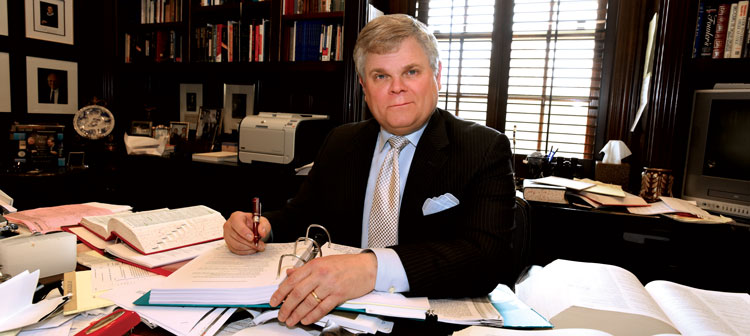How to make the most of your time during the pandemic

Photo illustration by Brenan Sharp/Shutterstock
“There is nothing new under the sun,” according to an important Jacobean text—namely, the King James Version of the Bible (Ecclesiastes 1:9).
To illustrate the point, people were true to form when a few started tweeting and commenting that William Shakespeare wrote King Lear while quarantined during the plague in 1603. That assertion was retweeted and repeated endlessly. Few checked the facts, but many felt inspired to try doing something meaningful during the stay-at-home orders resulting from COVID-19.
Actually, though, Shakespeare is thought to have written King Lear in 1605, not 1603. There may or may not be any truth to his having done it when playhouses were closed because of the plague. We just don’t know: That part of his biography is a mystery.
That’s not to say you shouldn’t try to do something meaningful while staying at home. You should. Maybe you’ll even change the course of English literature. But I doubt even Shakespeare thought he was doing that.
After Shakespeare joined a London acting troupe in 1588, the playhouses were closed from time to time—as they were for much of 1594. It was a continual problem. During his last decade as a playwright, from 1603 to 1613, the playhouses were closed a total of 78 months. That’s when “plague orders” were put into place: Whenever the deaths passed a certain number, infected houses were put under a 21-day quarantine; every householder had to wash his part of the street twice a day; graves had to be 6 feet deep; two women from each parish were designated to shop for and nurse the quarantined; and only certain physicians were allowed to care for infected patients. Sounds vaguely familiar, doesn’t it?

Photo of Bryan A. Garner by Winn Fuqua Photography
Nobody in those days knew what caused the plague. The scientifically minded thought it resulted from an airborne contagion. So one of the first measures when the plague struck was to close the playhouses. The mystically minded also liked this measure because they thought sinful stage performances were themselves the cause. As one London preacher put it, “The cause of plagues is sin, if you look to it well; and the cause of sin are plays; therefore, the cause of plagues are plays.” His grammar was no better than his logic.
Scientists now say that the disease was transmitted by the bite of an infected rat flea—a flea that bites humans only when all the local rats have been infected and killed. And unlike human fleas, rat fleas can’t jump far, so people must be in close confinement for the disease to spread. (Unfortunately, they hadn’t invented the phrase or even quite the concept of social distancing, which didn’t emerge in public health vocabulary until the 1970s.) The most dangerous things for the spread of the disease were the clothing and bedding of plague victims, along with wooden buildings, earthen floors, trash heaps and dunghills.
Of those infected, some 60% to 90% died.
Odd, isn’t it, to think that the absence of rats made things less safe?
And it’s a little odd to think the public authorities knew more than four centuries ago that when an outbreak occurs, people need to stay home and not congregate—whether to watch sinful plays, attend bear-baiting spectacles or even shop in crowded marketplaces.
Seek to be worthy
Regardless of whether Shakespeare used playhouse closings to write great drama, it’s worth asking yourself: What should I do during periods of isolation?
Perhaps during stay-at-home orders you were schooling the kids, cleaning the house, preparing more meals than ever, doing jigsaw puzzles, undertaking home improvements, learning how to use Zoom or just going stir-crazy. But what were you doing professionally? Perhaps you were tending to clients’ needs, marketing your services or just hoping more business would come.
I have a suggestion—one inspired by the story about Shakespeare and Lear.
One thing you must do as a lawyer, at all times, is cultivate your mind. You can do it mostly through reading and reflection. Serious reading.
I take as my text The Analects of Confucius. The great ethicist referred to “the unpretentious hiving of wisdom and patient self-cultivation.” Confucius was constantly urging people to prepare themselves properly for opportunities that might come their way. He warned about getting carried away with the tinselly shows of accomplishment: “Be not distressed by lack of recognition but rather by lack of ability.”
If you’re constantly worried about being up to snuff professionally—and ensuring you might be—you’ll do better than if you’re worried about the number of awards on your wall.
In another place, Confucius said: “Instead of being concerned that you have no clients, be concerned to think how you may fit yourself for clients. Instead of being concerned that you are not known, seek to be worthy of being known.”
OK, I changed that quote for my legal audience: He said office instead of clients. It’s just that I translate the Chinese original a little differently. That is to say, I would if I knew how to read it.
Hey, presto! A challenging project in self-cultivation presents itself: Learn to read and speak Mandarin.
Well, no. It’s not that easy—neither learning Mandarin nor deciding what type of self-cultivation constitutes the best and highest use of your time.
That’s the perennial question: What’s the best and highest use of your time?
What about you?
For me, it wouldn’t be learning a tone language. For some lawyers, it certainly might be, especially perhaps those on the younger side. Statistically, they can most easily acquire a language with phonemes that are alien to their native tongue. But when you’re past 50, it’s a much bigger struggle. And I have other missions to accomplish in the finite time I have left here.
I’m writing a screenplay, it’s true, and (as always) I’m preparing new definitions for legal terms. But I’d be doing those things even if there weren’t a pandemic. I’m also completing some new law-related books and revisions of books. I didn’t leave the house for more than three months.
Three months at home. Without setting foot off the property. That’s the first of a lifetime. And for someone who, in the pre-2020 world, had a run of more than 30 years spending 180 nights a year on the road teaching lawyers around the country, that’s quite a change.
Our world has been and will continue to be transformed by a virus.
I’m not writing Lear. I don’t have the ability. But I’m trying, to the best of my ability, to make the most of my abilities.
What about you? What’s the best and highest use of your time? Surely, you’ve been thinking about it.
My wife, a member of the patent bar, has been making high-grade masks for friends and family with sewn-in filters and pockets for additional replaceable filters to be added; learning crochet; learning simplified Chinese as well as Korean (OK, I feel inadequate); rediscovering her love of cooking; becoming a gardener; and, on the professional side, reading various Harvard Business Review guides (they’re excellent). She has also written two appellate briefs.
But once again, what about you? If you’re a member of the ABA, I have no doubt you’ve thought about the best and highest use of your time.
The only thing I can usefully add, from this bully pulpit, is to suggest that you think of your future clients—the ones who will be depending on you five or 10 years from now. Someday before long, they’ll be counting on you to have prepared yourself to perform to your utmost. They’ll need you to be diligent, smart and wise.
Whatever you can do now to prepare for that time will be a good and high use of your time—and perhaps even the best and highest.
To put it negatively, I might quote King Lear: “Nothing will come of nothing.”
This story was originally published in the August-September 2020 issue of the ABA Journal under the headline: “The Perennial Question.”
Bryan A. Garner is the president of LawProse Inc., the editor in chief of Black's Law Dictionary and the author of more than 25 other books on writing, language and jurisprudence. Follow him on Twitter: @BryanAGarner



